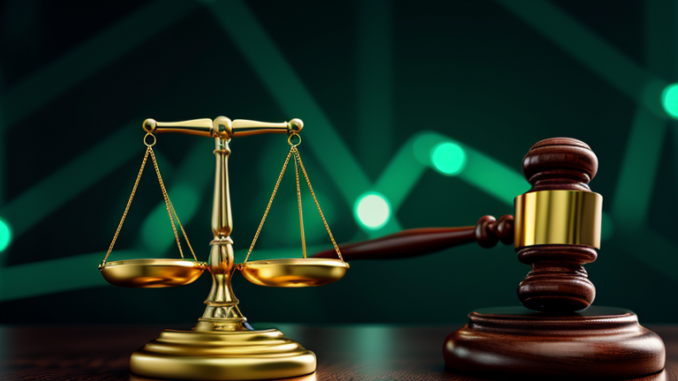
Judges in the US are questioning the actions of the Securities and Exchange Commission (SEC) in the cryptocurrency industry. Ripple, a blockchain technology company, recently won a court ruling that declared its XRP token is not a security offering. This ruling has significant implications for Ripple and could change the regulatory landscape for the entire cryptocurrency industry in the US.
The lawsuit between Ripple and the SEC caused XRP to be delisted from various exchanges, impacting Ripple’s payment system. However, the recent ruling brings hope as exchanges can now consider relisting the token.
The ruling also opens up the possibility of XRP being preserved as a non-fungible token (NFT), a unique digital asset that can be bought, sold, and owned. This blurs the line between traditional art and digital assets, as demonstrated by a recent exhibition by artist Murakami featuring NFTs and themes of collapse and inflated egos.
Ripple’s Apex developer conference in Amsterdam showcased developers building within the XRP Ledger blockchain ecosystem. This blockchain is the foundation of RippleNet, the network managing Ripple’s XRP payment system. The conference facilitated discussions and collaborations, demonstrating the innovative potential of Ripple’s technology.
This court ruling could have positive implications for other SEC lawsuits in the crypto space. Cryptocurrency blockchains like Solana, Cardano, and Polygon have faced similar allegations of being unregistered securities. The Ripple case sets a precedent that may prompt a reevaluation of these lawsuits and alter regulatory action.
During the Apex conference, Cointelegraph had an exclusive interview with David Schwartz, Ripple’s Chief Technology Officer (CTO). Schwartz highlighted the impact of the SEC case on Ripple’s business deals and emphasized the importance of clearer regulations to foster innovation and growth in the cryptocurrency industry.
The outcome of Ripple’s case is crucial for the crypto ecosystem as participants consider relocating to jurisdictions with more regulatory certainty. This ruling may influence these decisions as companies seek more favorable environments for their operations.
While the ruling in favor of Ripple is significant, it’s important to note that the SEC can apply the same arguments to any cryptocurrency or business. The industry must stay proactive in engaging with regulators to strike a balance between innovation and investor protection.
In conclusion, the recent court ruling clearing Ripple’s XRP token from being considered a security offering marks a potential turning point in the SEC’s scrutiny of cryptocurrencies. This ruling brings hope for Ripple and its ecosystem, and it sets a precedent for future litigation in the wider cryptocurrency industry. The increasing connection between art, NFTs, and cryptocurrencies further demonstrates the interplay of digital assets across various sectors. Ultimately, the industry must engage with regulators to establish clear guidelines that promote innovation while safeguarding investors.

Be the first to comment